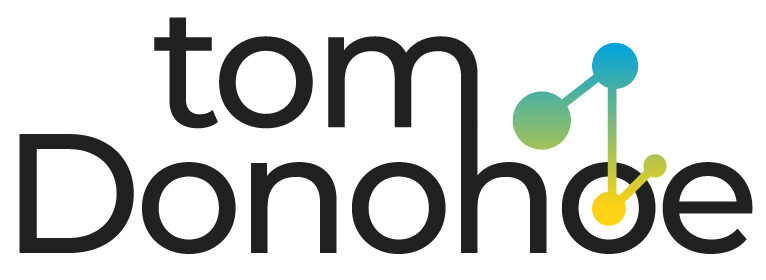Be Mindful, Not Fearful: The Pitfalls of Expensive AI Training Courses

In the fast-paced, burgeoning area of artificial intelligence (AI), There’s plenty of excitement and, unfortunately, some naive methods aiming to capitalize on the Fear of missing out. Fear of Missing Out (FOMO) for those brands unfamiliar with the field.
Recently, there’s seen an increase in YouTube advertisements promoting inexpensive entry-level AI classes that are usually only the tip of the Iceberg.
When they are enticed, novices are pushed to take expensive advanced courses driven by Fear that they’ll be out of the loop if they don’t.
Here’s the truth:
AI Learning Should Be Affordable
Many excellent materials and courses are accessible on the internet at no cost or for an affordable price. Reputable universities and institutions provide Massive Open Online Courses (MOOCs) through platforms like Coursera, edX, and Udacity that are either completely free or significantly less than the cost associated with the previously mentioned “exclusive” courses.
Here are a few specific resources to help you learn AI from beginner to advanced levels. They are cost-free or free of charge:
Coursera Andrew Ng’s Machine Learning course is an excellent point of entry. It is also worth checking out the Deep Learning Specialization. Many courses are free, and financial aid is readily available.
EdX The Harvard CS50’s Introduction to Artificial Intelligence using Python is an excellent beginning course. For advanced students, Columbia’s MicroMasters Program in Artificial Intelligence provides in-depth information on the subject.
MIT OpenCourseWare: MIT’s Introduction to Computer Science and Programming Using Python and Introduction to Computational Thinking and Data Science are free and great fundamental courses. They also offer an advanced system called Artificial Intelligence.
Udacity Introduction to Machine Learning using PyTorch and TensorFlow is an excellent introduction for newbies. The Udacity nanodegree programs, such as Nanodegrees in Machine Learning Engineering, such as the Machine Learning Engineer Nanodegree, are not free but thorough.
Google’s AI Hub Google’s Machine Learning Crash Course is an easy and accessible introduction to machine learning.
fast.ai: They provide a highly-respected and accessible course, Practical Deep Learning for Coders.
Kaggle: Kaggle is a platform allowing analytical and predictive modeling competitions. They offer hands-on ways to understand machine learning and data science and provide free micro-courses that cover particular subjects.
DataCamp It offers interactive R, Python, Sheets, SQL, and shell-based courses covering topics related to data science, statistics, and machine learning. Although not all classes are free, the price is comparatively low.
Stanford Online The Stanford Online Machine Learning course taught by Andrew Ng (also available on Coura) is among the most highly-rated AI online courses.
Keep in mind that continuous practice is essential in learning AI. Use resources such as GitHub to collaborate on projects and platforms such as Kaggle for competitions that will help you sharpen your abilities.
No Shortcuts to Mastery
AI is a complicated area that requires deep knowledge and real-world expertise. Any course, however expensive, can transform you into an AI expert in hours. Learning to master the art takes patience, practice, and continual learning.
Most estimates suggest that understanding the basics of AI can take anywhere from a few weeks to one year of study full-time (this could include finishing an online master’s program or a variety of high-quality online courses).
Being a proficient or “expert,” may take many years of research and practice, similar to achieving a high standard of knowledge in other fields of technology.
The goal isn’t simply to master AI but to learn how to deal with problems using AI.
This usually means focusing less on particular tools or languages and more on the fundamentals, such as problem-solving and a sense of creativity. An interest in learning, persistence, perseverance, and a passion for learning are vital to mastery in this area.
FOMO Is Unnecessary
The area of AI is vast, covering various specializations, from machine learning to natural language processing and robotics. There’s no one-size-fits-all way, and there’s undoubtedly no race. Each student should discover their way to learn at their speed.
It is crucial to review the course before making a decision. Examine the system’s content and look for the transparency of pricing, search for impartial reviews, and then compare it to other available resources.
Here are a few examples of manipulative techniques that exploit FOMO (Fear of Not Being able to Attend) within AI training. AI training
Limited-Time Offers companies often create an impression of urgency by advertising discounts with a limited time or incentives, suggesting prospective students will miss out on a great opportunity when they don’t sign up right away.
Exclusive Membership Promoting the notion that by taking a costly course, you’re a member of an elite or exclusive group, which implies that you may be missing out on opportunities only available for members of this particular group.
Success Testimonials: A collection of triumphant tales where people who have taken the course claim to have achieved remarkable outcomes. This could create an anxiety of not being able to share similar results.
Exclusive Learning Methods If the course is based on unique, complete learning techniques or tools that cannot be located elsewhere, it indicates that you’ll know if you do not take this course.
Future Fear Paints a picture of a future dominated by AI where those who aren’t aware of AI will be a step behind, professionally and socially.
Upselling starts with an introductory course for cheap or no cost and then continuously upsells higher-priced procedures, implying that you only obtain the total knowledge by buying these.
In the process of learning AI or any other subject in general, the process is different for each person. It shouldn’t be undertaken to avoid not getting it.





